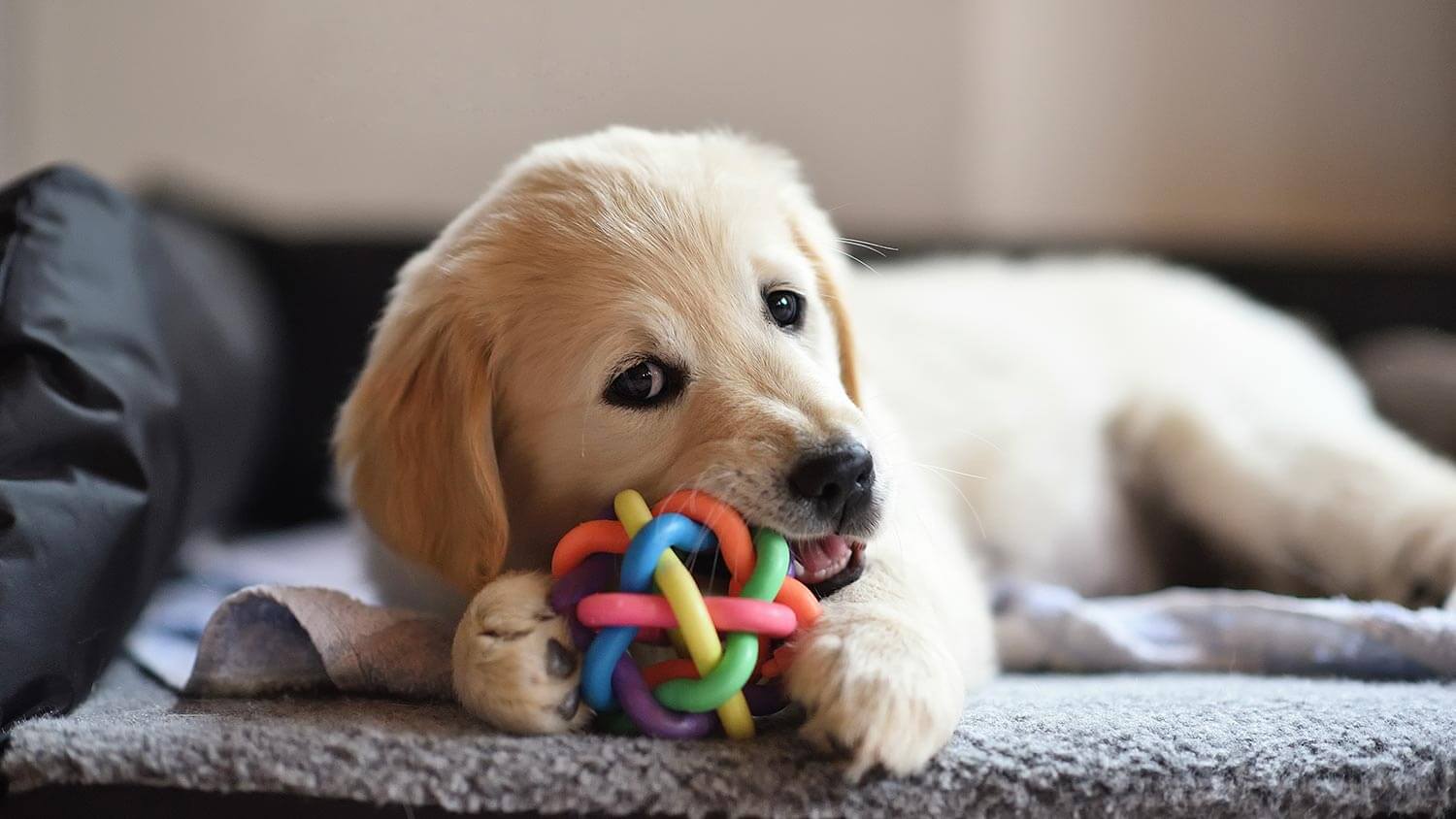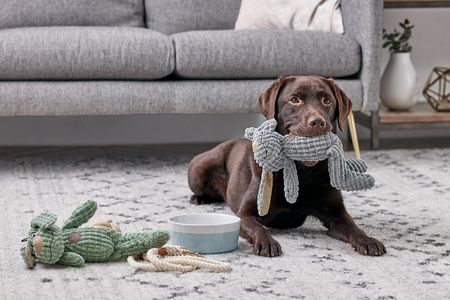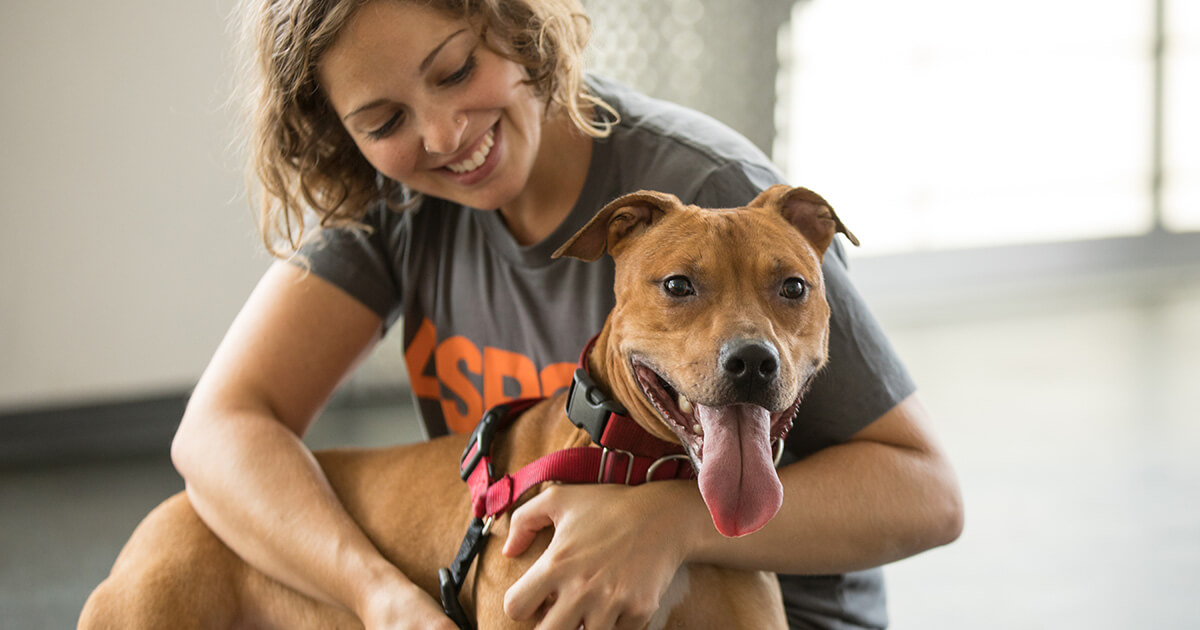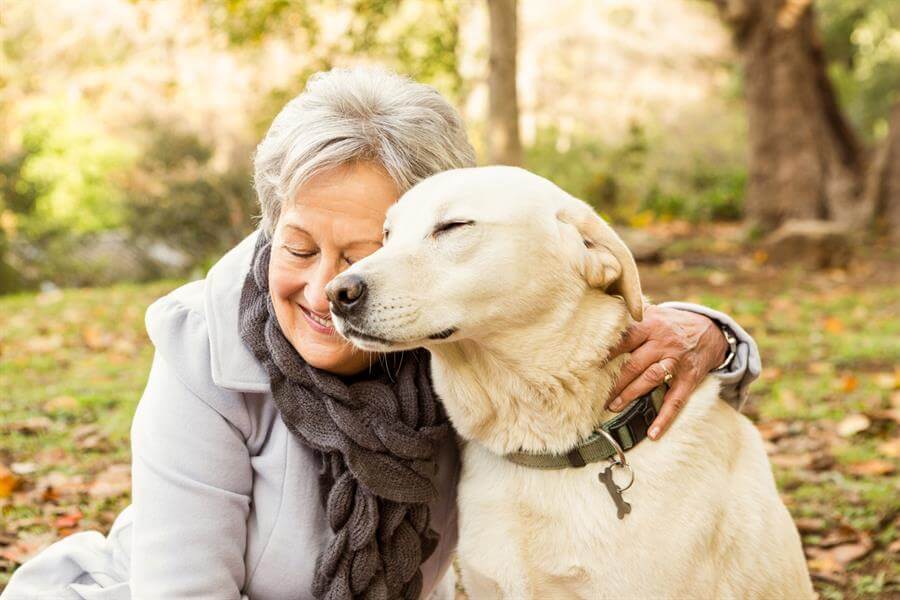How to Prepare for Adopting a New Dog

Adopting a dog can be overwhelming if you don't know where to begin, but bringing home a pup is also fun and exciting! Sit down with your family members and have a thorough heart-to-heart discussion before heading to the shelter to pick out your pooch. Then, get to work preparing for your brand new family member. To help ease that stress, here are things you can do to ensure a smooth transition for everyone.
Gather The Supplies
Even if you’re a few weeks out from bringing a new pup home, it doesn’t hurt to go ahead and do some prep work first. Get everything you’ll need to make him safe and comfortable before bringing him home. You will need a few basic dog supplies ahead of time so you don’t have to run to the store at the last minute, and can spend time with your new pup.

If you plan to crate train, be sure the crate is ready. And if your new dog has a special item ( such as a toy, bed or blanket) from its foster home or shelter, find out if you can take it home. This can help make your home feel familiar.
Prepare Your Home
Similar to babyproofing, it's always a smart and safe idea to ready your space before your pup comes home. Dogs are notorious for getting into food, trash cans, and toilets, so do a walk-through of your home to determine if there are any attractive nuisances you should address. Stow away items that might be harmful to small or overly curious pups, and pick up those items you don't want to get chewed.
You should prepare the rest of the family and discuss which family members will take up feeding, walking, and training. If other animals already live at home, be sure their shots are up-to-date for everyone's safety. And if you have any cats, you should have a designated dog-free area where they can retreat, giving them a way to acclimate to the new arrival's excitement on their own time. This may seem like overkill to some, but this preparation helps keep your pooch safe and eases everyone's transition process.
Choose a Vet
It may seem premature, but it’s a good idea to find a veterinarian even before you adopt your dog. Many adoption organizations actually require you to list your vet’s name on their application, so if you have one picked out, it’ll make the adoption process go more smoothly.
Ask family and friends for referrals, then call the suggested vets and let them know you’re about to adopt a dog and are looking for information on their vet practice. It’s important to know how much the vet charges per visit, what their hours of operation are, and whether they’re available for after-hours emergencies. It’s also a good idea to meet your top candidate in person, just to get a feel for how he or she interacts with humans and animals.
Once you’ve chosen your vet, go ahead and ask his or her advice about food brands, trainers, and must-have supplies. While you don’t have to follow every bit of your vet’s advice, it’s a good idea to have professional input before you bring your new pup home.
Connect With Your Dog
You should spend the first few days bonding with your new dog, but give it some space as well. If it wants to spend time in the crate rather than with you, let it do so. However, you can encourage your dog to interact with you through the use of treats and a soft, calm voice.
You still need to establish a routine and set down "house rules." Begin feeding, walking, and interacting with your dog on the same general schedule each day. If there are areas in or around your home that are off-limits to your dog, establish this upfront. This can be done either by blocking access to the areas or by using the "leave it" command.
Introducing to your other dog(s)
The Animal Rescue League of Boston recommends bringing dogs outside one at a time to meet the new canine. Keep other dogs on their leashes and supervise their interactions, keeping in mind that too heavy an introduction can cause them to become territorial with the new arrival.
Show Your Dog around the House and Yard
Keep him on leash as you let him explore and sniff inside. And out. Show him his food, bed, and toys, and let him know what's off limits with short but firm commands such as "no" or "leave it." Adopted dogs should have plenty of time and space to sniff out their new surroundings. If you've designated a potty space in your yard, lead him to it and reward him with a treat when he uses it successfully.
Transition the Dog's Food
Find out what food your new dog is currently eating and make sure you have enough for the first few weeks. If you plan on changing its food, wait at least a week before introducing the new diet. Then, gradually transition to the new food over a week or so.
Both stress and diet change can cause stomach upset and diarrhea. Keep an eye out for these or any other signs of illness, many of which may also be brought on by stress.

Begin Training Immediately
Training should start from the moment your new dog comes home but it's best to start slowly. Even if your dog came to you fully trained, it’s a good idea to go ahead and sign up for a basic obedience class within the first week or two of ownership. These classes are as helpful to the dog owner as they are to the dog, and they establish a chain of command within the house. Standard classes through major pet stores typically cost about $100. This may seem like a lot, but the peace of mind provided is definitely worth the expense, and the classes help ease your dog’s mind, too. Dogs are pack animals, and they need to know who’s boss.
Schedule A Vet Visit
Last, but certainly not least, you need to schedule a vet visit shortly after adopting your pet. Some adoption organizations provide a follow-up vet visit for free, but if your shelter doesn’t, you need to do this on your own.
The vet visit determines whether there are any health issues you should be conscious of, and it puts your dog on a regular schedule for immunizations. It’s also a good idea to pay for an antigen heartworm test if your shelter just tested for heartworms using the less-accurate antibody test. Use your time with the vet to ask questions and talk about any owner concerns, whether medical or behavioral.



